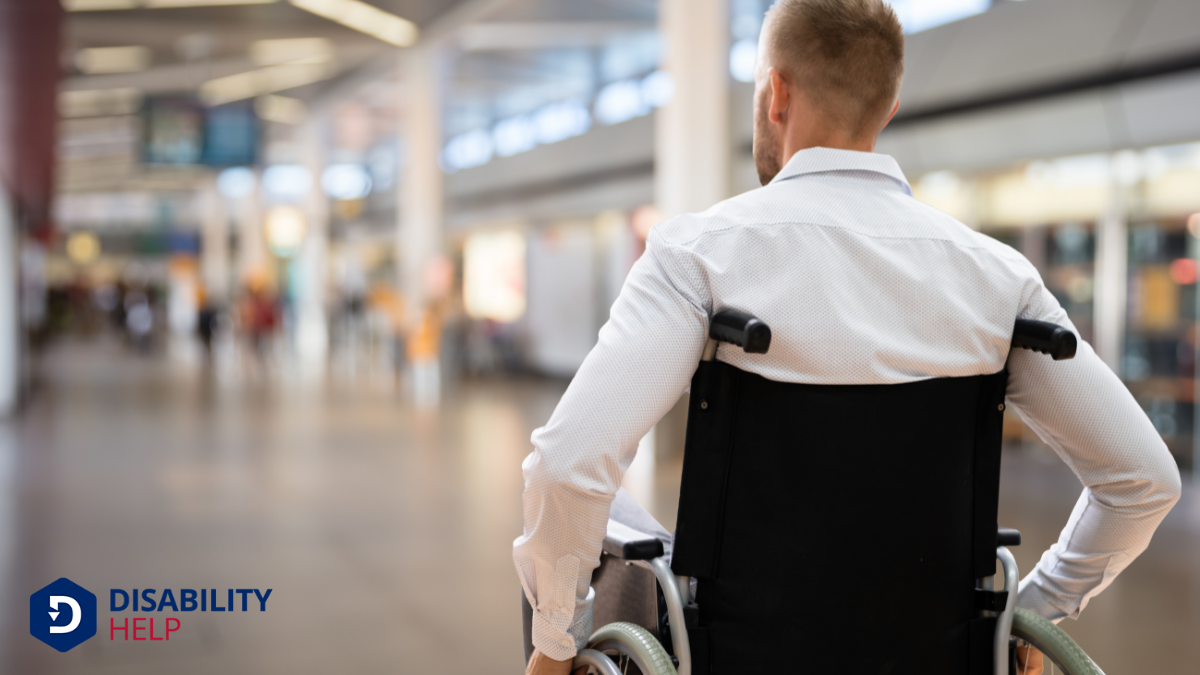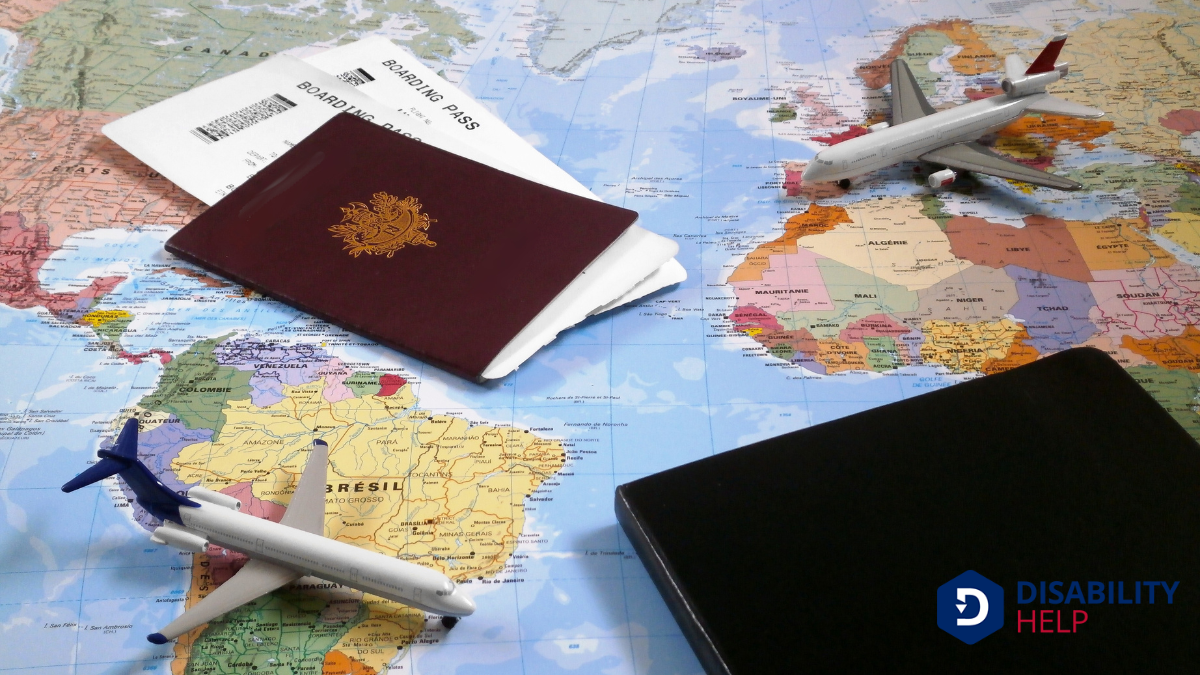When you're on workers' compensation, the idea of traveling might spark a mix of excitement and concern. You're probably wondering how a trip could impact your recovery and benefits. Before you pack your bags, though, it's critical to understand the nuances involved. From consulting your doctor to steering through employer policies, there's a lot to reflect on. So, how can you guarantee your trip doesn't jeopardize your workers' compensation claim? Let's explore.
Key Takeaways
- Travel is possible on workers' compensation, but it requires prior approval from medical providers and insurance carriers.
- Notify your employer and insurance provider about travel plans to ensure compliance with workers' compensation policies.
- Obtain written confirmation for any discussions or approvals regarding travel to protect your benefits.
- Adhere to any activity restrictions during travel to avoid jeopardizing your workers' compensation claim.
- Consult with healthcare providers to evaluate how travel might impact recovery from work-related injuries.
Understanding Workers' Compensation Benefits
Workers' compensation, an essential safety net, offers important benefits for employees who suffer work-related injuries or illnesses. When I'd my own experience with a work-related injuryAn injury that occurs in the course of employment, potentially leading to temporary or permanent dis..., understanding these benefits was vital.
Workers' compensation provides coverage for medical expenses, ensuring that I didn't have to worry about paying for necessary treatments or medications. It also offers wage replacement, helping me manage my finances while I was unable to work. This support can greatly ease the stress that comes with being injured or ill.
Furthermore, vocational rehabilitationServices that help individuals with disabilities prepare for, obtain, and maintain employment. services may be available to help me return to work or find new employment if my injury prevents me from resuming my previous role. Understanding these benefits helped me navigate a challenging time with greater confidence.
Evaluating the Impact of Travel on Your Recovery

When considering travel during your recovery, it's important to weigh the physical demands it might place on your body.
While travel can be exhausting and potentially hinder your healing process, it can also offer mental health benefits that shouldn't be overlooked.
I encourage you to consult with your healthcare provider to find a balance that supports both your physical recovery and emotional well-being.
Travel's Physical Demands
Although travel can be an exciting prospect, it presents unique challenges for anyone recovering from an injury. I know how tempting it's to escape the monotony of recovery, but it's essential to contemplate the physical demands of travel.
Long flights or car rides can be taxing, especially with limited mobility. Sitting for extended periods might aggravate your condition, and carrying luggage could strain healing muscles. Even simple tasks, like maneuvering through crowded airports or train stations, can push your body beyond its limits.
Before planning any trip, I recommend consulting with your healthcare provider. They can help assess whether your body is ready to endure the physical stresses of travel.
Mental Health Benefits
While physical recovery is essential, don’t underestimate the mental health benefits of travel during your recovery journey. I’ve found that a change of scenery can work wonders for your mind.
It’s not just about escaping the monotony but allowing yourself to breathe in new surroundings. This shift can provide fresh perspectives, reduce stress, and enhance mood.
Imagine a place where your worries seem lighter, and even for a moment, you feel more at ease. Traveling, even short trips, can offer this reprieve.
It’s about nurturing your mental health, which is just as important as healing your body. Remember, though, it’s important to speak with your healthcare provider to guarantee travel won’t interfere with your physical healing process.
Consulting Your Medical Provider
When thinking about traveling while on workers' compensation, I can't stress enough how important it's to consult with your medical provider first.
You'll need their approval to guarantee your travel plans won't hinder your recovery. Make sure to get their recommendations in writing, so you have clear documentation if questions arise later.
Medical Provider's Approval
Before planning any travel while on workers' compensation, it’s vital to consult your medical provider for approval. Your health and recovery should always come first, and your provider knows your condition best.
Here’s why their approval is important:
- Safety: They can assess whether travel is safe for your specific injury. They’ll consider factors like mobility limitations and any potential complications.
- Treatment Schedule: Your provider can ascertain that travel won’t interfere with important treatments or rehabilitationThe process of helping individuals with disabilities achieve and maintain their optimal physical, se... appointments. Missing these could delay your recovery.
- Documentation: Having written approval may be necessary to avoid any issues with your workers' compensation claim. It’s a safeguard against misunderstandings with insurers.
Travel Impact on Recovery
Understanding how travel could impact your recovery while on workers' compensation is crucial. When you're healing, it's important to reflect on how different activities, like traveling, might affect your progress.
It's not just about the physical demands of travel but also the potential stress and disruption to your routine. Before making any travel plans, consult your medical provider. They can offer guidance tailored to your specific condition and recovery needs.
Asking questions about the safety of traveling and what precautions you should take guarantees you're not inadvertently slowing down your recovery. Your health is the priority, and your medical provider is there to help you make informed decisions that keep your recovery on track while contemplating any travel desires you have.
Documentation and Recommendations
Consulting your medical provider is a necessary step in guaranteeing your travel plans don't hinder your recovery while on workers' compensation.
When talking to your doctor, discuss your travel intentions and listen closely to their advice. They'll help assess whether the trip aligns with your healing process.
Here are the steps I recommend:
- Gather Documentation: Request any necessary documentation or travel recommendations from your provider. This could include medical records or a letter stating your travel won't harm your recovery.
- Ask Key Questions: Make sure to ask if there are specific activities to avoid or medications to take while traveling.
- Follow Recommendations: Adhere to your medical provider’s guidance. This illustrates your commitment to recovery and guarantees compliance with workers' compensation regulations.
Take these steps seriously—your health depends on it!
Reviewing Your Employer's Policies
When you're considering travel while on workers' compensation, it’s crucial to first review your employer's policies. Your employer may have specific guidelines regarding travel, and understanding these can save you from potential issues later.
Some companies have restrictions on travel for employees on workers' compensation, especially if it might interfere with your recovery or return-to-work plans.
Take a moment to check any employee handbooks or documents you’ve received related to workers' compensation. If you can’t find this information, don’t hesitate to contact your HR department for clarity.
They can guide you through your company's procedures and help you understand any approvals needed. Remember, staying informed about your employer's policies helps guarantee you remain compliant and avoid unnecessary complications during your recovery.
Notifying Your Insurance Carrier

After reviewing your employer's policies, it's also important to notify your insurance carrier about your travel plans while on workers' compensation.
Communication is key to ensuring that your benefits remain intact. Here’s how you can approach this:
- Contact Your Agent: Reach out to your insurance agent or representative. They can provide specific guidance based on your policy and situation.
- Provide Details: Be ready to share your travel dates, destination, and purpose. The more transparent you are, the smoother the process will be.
- Get Confirmation: Request written confirmation of your conversation. This could be an email or a formal letter, ensuring there's no misunderstanding later on.
Understanding Legal Implications of Traveling
While planning a trip during workers' compensation, it's crucial to understand the legal implications that could affect your benefits. Traveling might raise questions about your injury's severity or your commitment to recovery.
Trust me, you don’t want to jeopardize your claim by giving the impression that you're fit for activities that contradict your reported limitations.
Check your state’s specific regulations, as laws can vary. Some regions might require you to get approval from your employer or doctor before you leave town. Ignoring these requirements could lead to a suspension of benefits.
Always keep documentation handy, like medical records or travel itineraries, to demonstrate your trip's necessity and compliance with your recovery plan. Being informed guarantees you stay protected while enjoying your travels.
Planning a Trip Without Jeopardizing Benefits
Even though you're keen to travel, it's essential to plan carefully to guarantee your trip doesn't jeopardize your workers' compensation benefits.
Start by evaluating how the trip aligns with your recovery plan. Here’s how to make sure everything is in order:
- Discuss with Your Doctor: Confirm your healthcare provider agrees that travel won't hinder your recovery. This keeps your health a priority and protects your benefits.
- Inform Your Employer: Transparency is key. Let your employer know about your travel plans to avoid any misunderstandings.
- Review Policy Restrictions: Carefully read your workers' comp policy. Some have specific guidelines about travel that you’ll need to follow.
Documenting Your Travel Plans

When planning to travel while on workers' compensation, it’s important to document your travel plans thoroughly.
First, I’d recommend informing your employer and the workers' compensation insurance provider about your travel intentions. Clearly outline your travel dates, destinations, and the purpose of your trip. Keeping everyone informed can prevent misunderstandings and potential issues with your claim.
I also suggest keeping copies of all travel-related documents, such as itineraries and hotel reservations, in case they’re needed later. Documenting any medical arrangements, like visits to healthcare providers at your destination, can further support your case.
If possible, I’d advise you to consult with your attorney to make sure you’re compliant with any specific reporting requirements. This proactive approach helps maintain transparency and protects your benefits.
Handling Potential Issues During Travel
Traveling while on workers' compensation can sometimes lead to unforeseen challenges, but being prepared can make a big difference. Trust me, I’ve been through it. Here’s how you can handle potential issues:
- Stay in Communication: Always keep your employer and insurance company informed. Updates about your whereabouts and health condition are essential.
- Keep Medical Records Handy: Bring copies of relevant medical documents. They’re invaluable if medical assistance is needed while away.
- Understand Restrictions: Know what activities are off-limits. Engaging in prohibited actions might jeopardize your claim.
Preparation is key. I’ve learned that anticipating and addressing these potential issues can help maintain peace of mind and compliance.
You’ve got this, and I’m here cheering for you every step of the way!
Conclusion
So, if you're thinking about traveling while on workers' compensation, remember to prioritize your recovery. Talk to your doctor to verify it's safe and won’t set you back. Keep your employer and insurance carrier in the loop to stay compliant. Stick to any activity restrictions and document everything. By taking these steps, you can enjoy your trip without risking your benefits. Safe travels, and focus on healing first and foremost!






